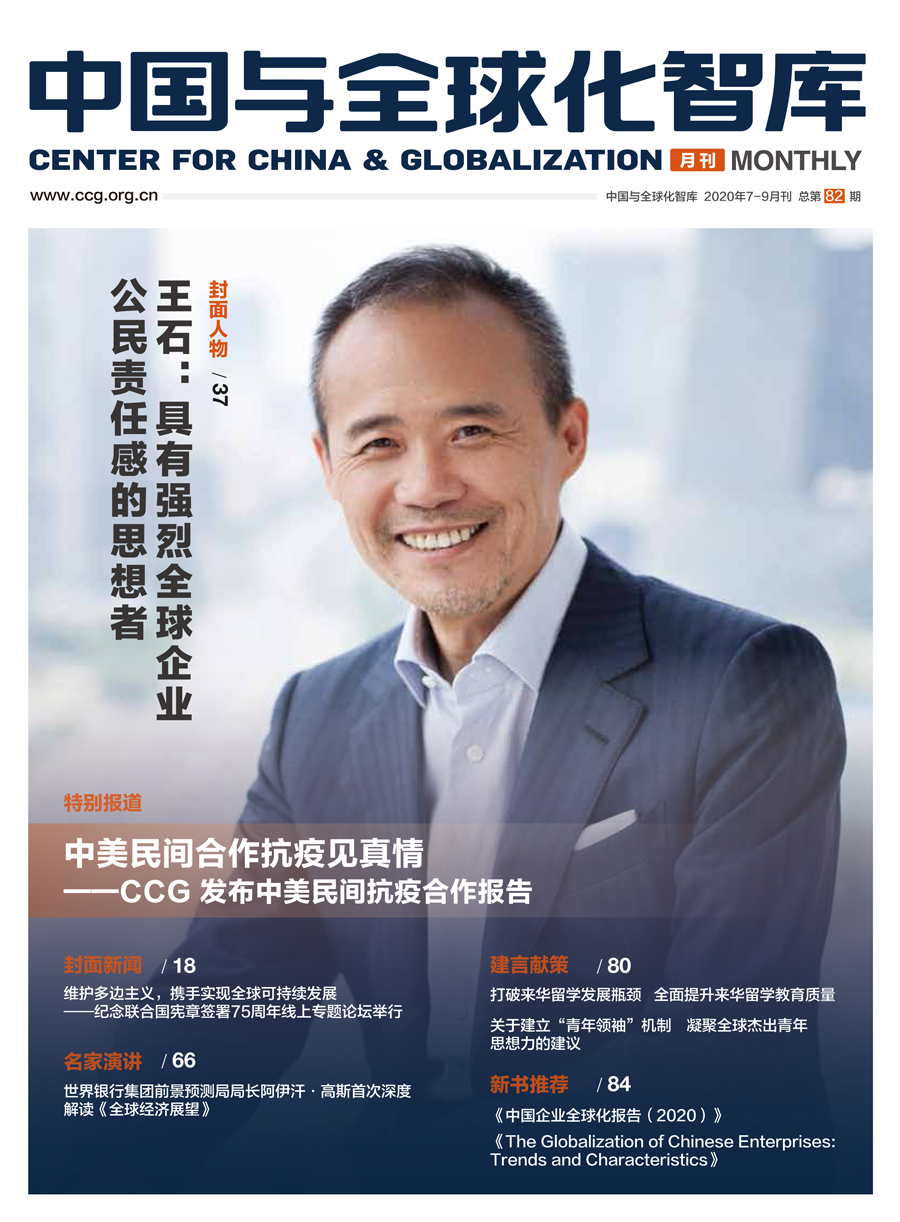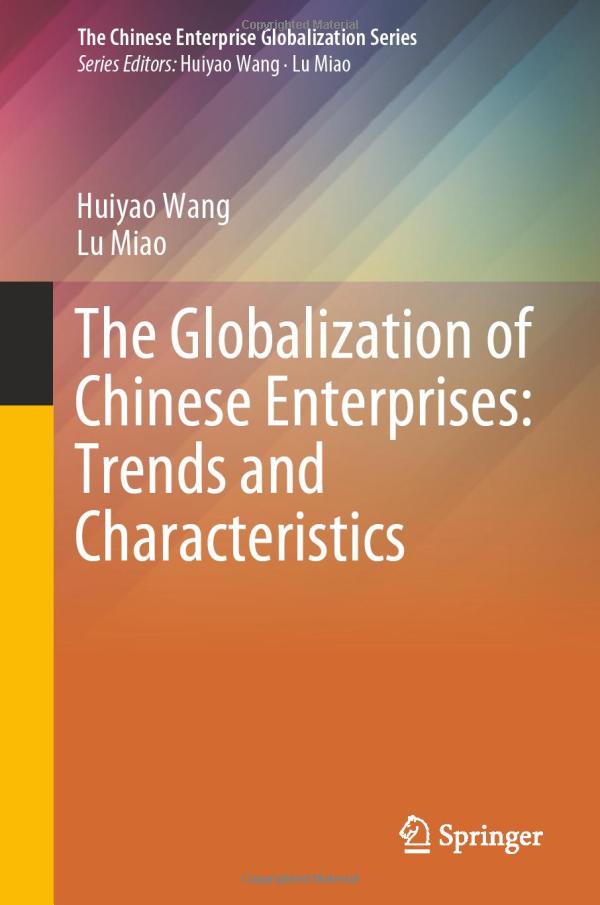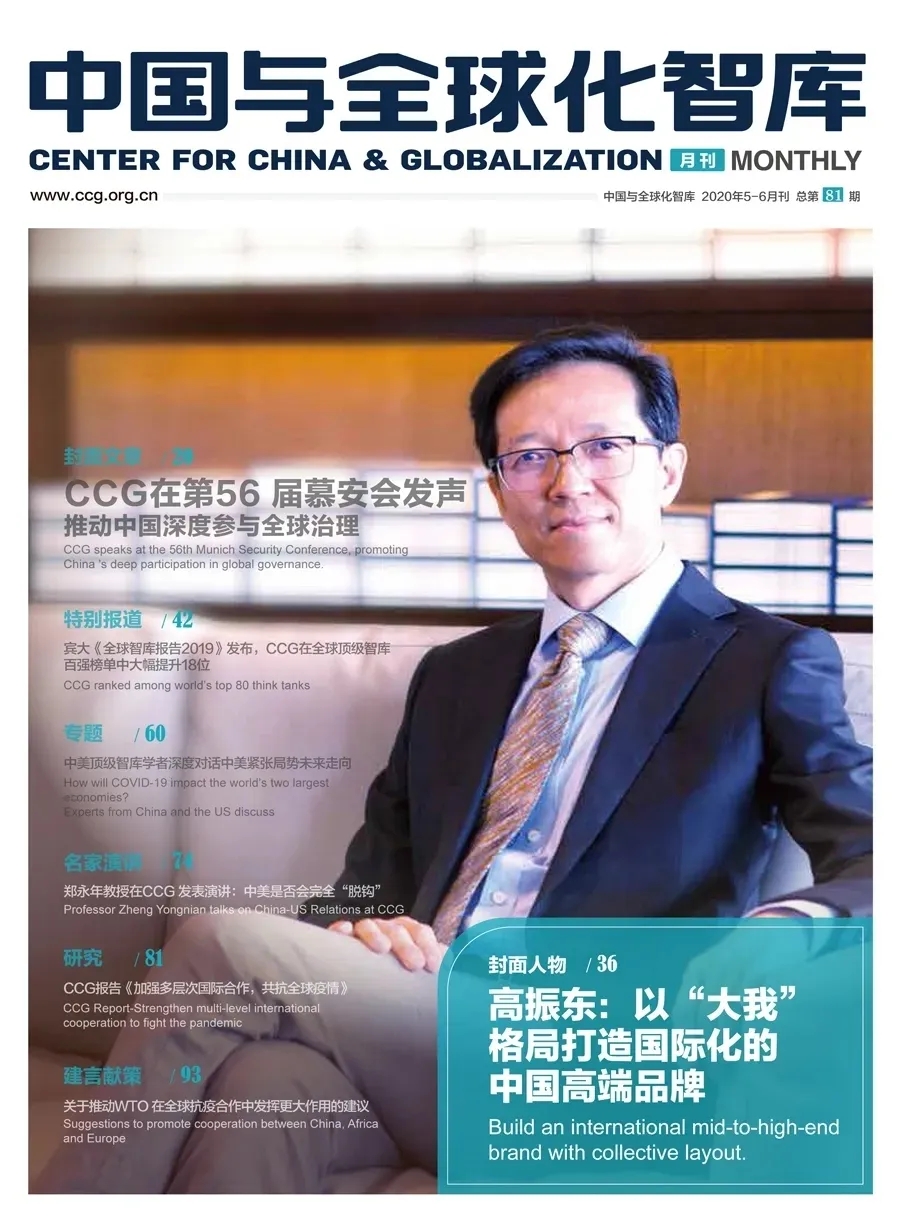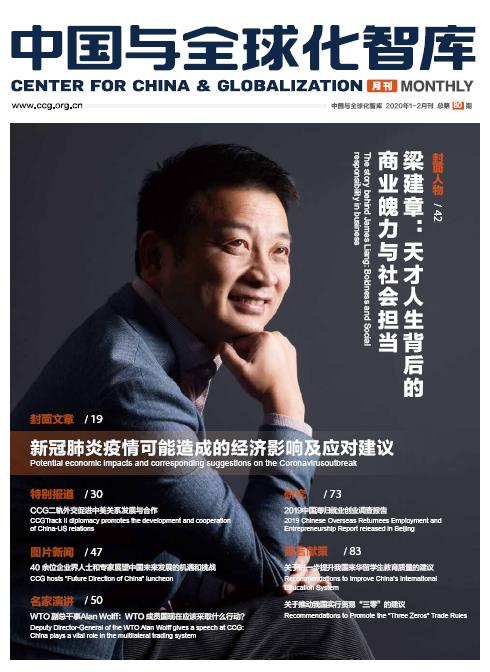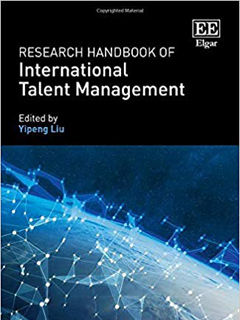CCG Book: China Goes Global
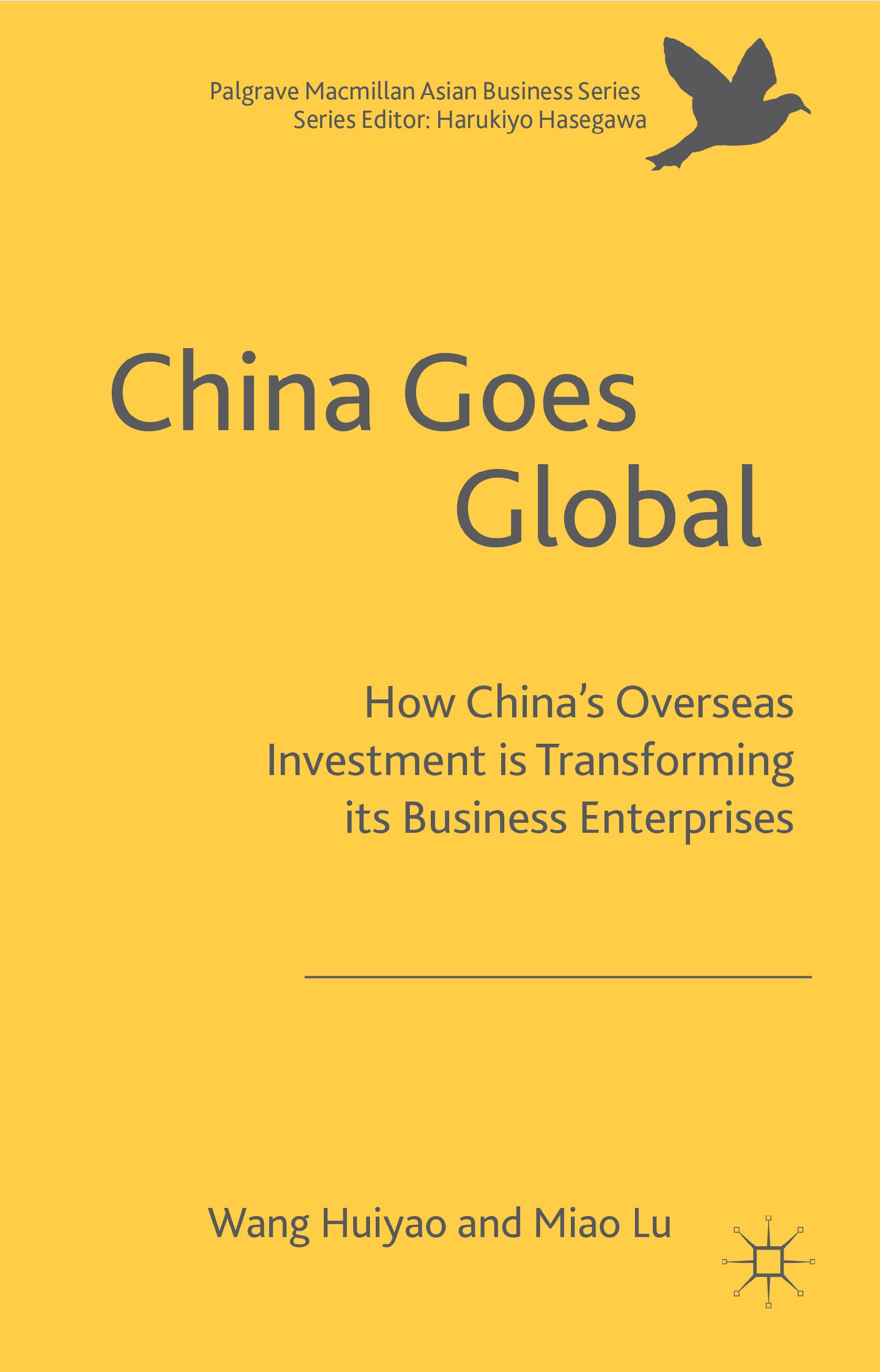
Publisher:
Author:
Release Date:
Click for Larger Picture
Upgrading Chinese Business Enterprise Globalization
By: Long Yongtu
Chairman, Center for China & Globalization (CCG) Strategic Advisory Board and former chief negotiator for China’s entry into the WTO.
Since the Reform and Opening Up policy, China’s economy has undergone 36 years of extraordinary growth. Economic globalization and the rising competitive strength of China’s economy has played a particularly important role in spurring Chinese companies to expand their foreign direct investment (FDI) and accelerate their transformation into global firms. Since China joined the WTO in 2001, the average annual growth rate of FDI has been as high as 36.5%. In 2013, China’s FDI topped 100 billion Yuan for the first time. As of July 31, 2014, the total stock of Chinese FDI amounted to $713 billion. In every area— scale, scope, form, and diversity—China’s FDI has made significant progress.
The FDI activity of Chinese enterprises has been referred to as their “Going Global” strategy. China now sees global economic development as an integral part of transforming and upgrading its economy. This strategy will enable China to expand its room for development in a globalized world, improve the level of international competitiveness, and promote sustainable economic growth. Implementing the “Going Global” strategy can not only help develop new international markets and expand exports for Chinese firms, but also boost the international profile and influence of those companies. That, in turn, will lead more Chinese enterprises to participate in international economic cooperation at a deeper level.
In the past, the internationalization of Chinese enterprises occurred mainly through the introduction of foreign investment in China. Such investment forced Chinese domestic firms to compete with non-Chinese companies on China’s domestic market, forcing them to improve their competitiveness vis-à-vis these foreign rivals, thereby serving as important first step in successfully operating on the international market. Now China’s enterprises are starting to “Go Global”. By investing directly abroad, the Chinese firms are actively restructuring the overseas market to fully exploit and utilize global resources and markets. In so doing, these companies have become more and more globalized in their operations. We are pleased to see that through finely honing their practices in this area, a growing number of Chinese companies have been able to integrate global resources with a global perspective. Some are now even involved in leading the global value chain and have gradually developed into highly competitive multinational enterprises with strong core competencies and other strengths. Creating and developing more such companies will greatly deepen China’s participation in economic globalization and make its economy an integral part of this worldwide process.
In short, accelerating the pace of Chinese enterprises “Going Global” is not just an inevitable trend in the general development of economic globalization. It is also necessary for the development of China’s economy at this point in time. Vigorously promoting the greater involvement of Chinese enterprises in the foreign investment process is a task which cannot be delayed.
The Third Plenary Session of the 18th Central Committee of the CPC strongly endorsed this view, calling upon “Enterprises and individuals to directly invest abroad.” The statement added, “ Enterprises and individuals are permitted to develop overseas investment based on their own advantages. They are allowed to take risks in all the countries and regions to develop engineering or labor cooperation projects. And they can use innovative methods to undertake overseas expansion involving Greenfield investment, mergers and acquisitions, securities investment,, joint venture investments, and the like.”
This declaration has cleared the way for Chinese companies and individuals to go global and develop and expand FDI. In addition, the National Development and Reform Commission, the Ministry of Commerce, and other key Central Government Ministries have also issued relevant policies to encourage FDI. China is thus now beginning to experience the rapid growth of its FDI, which will usher in new development opportunities. Against the backdrop of a slowly recovering global economy, new modes of technical cooperation and industry transfer are brewing, and countries around the world have high expectations for capital inflows from China. With nearly $4 trillion in foreign exchange reserves, China currently has a great opportunity to develop FDI both as a way of conforming to the objective laws of economic development and to meet the needs of its domestic economy and the world economy. The convening of the Third Plenary Session of the 18th Central Committee of the CPC has thus embraced the idea that the expanding FDI activity of Chinese firms is opening up a new era for the China, particularly its place in the accelerating trend of economic globalization.
But compared with western developed countries, China’s FDI stock is still relatively low. As an economy superpower with more than 1/5 of the global population, 10% of the global GDP, and 15% of FDI inflows, the Chinese FDI stock now only accounts for 2.4% of the world’s total FDI stock. All of the world’s global economic superpowers are well-known for being FDI giants. Thus, despite being the second largest economy in the world, China’s FDI stock is not yet commensurate with its new-found global economic status. Given this disjuncture, we should study harder the successful experiences of other countries in undertaking FDI to carry out effective multilateral cooperation with different actors across various issues. This will provide a vital reference point for Chinese enterprises as they seek to go global. More importantly, the China’s Government must accelerate the implementation of foreign investment legislation and multilateral investment agreements to provide protection and support for the outward expansion of Chinese enterprises. Research institutes and think-tanks need to do deeper research on FDI to provide intellectual support for companies going global. There is no doubt that by stepping up their FDI activities, Chinese firms can further enhance their international competitiveness and become more globalized. However, doing this will require greater effort from China’s Government and more multilateral cooperation.
Studying the issues related to FDI is of great significance to the globalization of Chinese enterprises. The Chinese International Economic Cooperation Society and CCG has gathered experts and scholars as well as prominent entrepreneurs, heads of major companies, and other business movers and shakers, both at home and abroad, in the field of transnational investment. These individuals combine cutting edge thinking, rich knowledge, and vast practical experience regarding the efforts of Chinese firms to expand outward in the context of an increasingly globalized world economy. Drawing upon a large sample of interesting and significant case studies, the group undertook systematic research regarding worldwide FDI in order to solve the major practical problems Chinese firms face in going global. This book grew out of these efforts.
China Goes Global includes a large number of surveys and is supported by extensive data to provide a rigorous and systematic comprehensive picture of the current situation of Chinese enterprise globalization. In particular, it analyzes the problems and risks confronting Chinese firms in going global and reviews success stories of their doing so to provide good suggestions for devising effective FDI strategies. This book is therefore clearly very useful for firms seeking to navigate their way through the current complex international economic and trade environment. It will help these companies avoid various risks associated with undertaking FDI in overseas countries by offering specific advice on how to better participate in international competition abroad. For this reason, the report has crucial theoretical and scholarly as well as practical significance.
On the basis of a large number of case studies, the book also provides a rigorous system for evaluating the internationalization efforts Chinese enterprises. This yardstick is based on their use of overseas talent, markets, social responsibility, industry chain management, and cross-border merger and acquisition activity. The evaluation system also uses popular international indexes such as assets and performance. The evaluation system of Chinese enterprise internationalization is very scientific and highly innovative, fully reflecting the degree to which a firm has effectively internationalized while conducting FDI and the overall quality of its efforts in this area. The evaluation system was used to determine the top 50 Chinese companies going global. These firms serve as role models in effective internationalization and provide an important reference point for other Chinese firms in expanding overseas. At the same time, those involved in this report selected the top 50 new Chinese enterprises undertaking globalization. This ranking is designed to encourage other smaller firms with limited experience in expanding overseas to also go global
The current international political and economic situation is certainly very complicated and unstable, and this makes the globalization of business firms a complex and difficult undertaking. Even some very well-known experts and scholars are sometimes unable to accurately predict its outcome. For that reason, the indexes of the evaluation system for China’s enterprise internationalization in this report will be constantly updated and improved over time. We thus hope that the people from all walks of life, especially the entrepreneurs with practical experience in doing business on the global market, can put forward their own valuable input regarding our ongoing work on the globalization of Chinese business enterprises.“China businesses are going global, transforming the country from a manufacturing export platform into an overseas investment powerhouse!”
Long Yongtu, Chief Negotiator, China’s Entry to WTO, Former Vice Minister, Ministry of Foreign Economic Cooperation and Trade, Chairman of CCG
“China Goes Global is an important book. It draws attention to a new reality which many business people have either missed, or underestimated in terms of implications: Chinese outward investment in foreign companies recently exceeded that of foreign investment in China! This book empirically examines Chinese foreign investment that exceeds $100 billion annually. It considers the various models followed, provides examples and rankings, and acknowledges the need for Chinese investors to improve their talent acquisition ability. Another transformation is underway regarding China’s place in the global economy. This book helps us better understand it.”
Paul W Beamish PhD, Canada Research Chair in International Business, Ivey Business School, Western University, Canada
“Well documented and convincingly presented, this book is a must read for anyone interested in understanding the transformative phenomenon of China’s going out strategies and their policy implications.”
Liu Hong, PhD, Chair, School of Humanities and Social Sciences, Nanyang Technological University, Singapore
“As China seeks to upgrade its economic growth model by globalizing its business enterprises, we need to examine carefully and sum up the experiences of internationalization success stories that can serve as models to guide Chinese enterprises trying to go global. It is with these aims in mind that Wang and Miao have undertaken and published this comprehensive research project on the globalization of Chinese business enterprises. This book is very useful for firms intending to go global.
Cao Dawang, Founder and Chairman, Fuyao Automotive Glass, China
“Huiyao Wang and Lu Miao have made a singular contribution to the study of Chinese globalization. In this well researched book, the authors examine the background of the globalization of China, including alternative models that have been used by Chinese entrepreneurs and businesses. Dr. Wang and Dr. Miao develop a unique and much needed ranking system for China global enterprises and recommends a list of top performers. They end the book with a discussion of challenges facing Chinese companies and how business leaders in China might approach these challenges with new, innovative solutions.”
Ilan Alon, Ph.D., Professor of Strategy and International Marketing, Editor, International Journal of Emerging Markets, School of Business and Law,University of Agder, Norway
“Wang and Miao’s timely, cutting edge and comprehensive study presents models, measurement matrices, theories and numerous cases studies of China’s overseas direct investment. This book is a must reading for anyone wanting to understand China’s potential impact on the global economy in the coming decades.”
David Zweig PhD, Chair Professor, Division of Social Science, Director, Center on China’s Transnational Relations, Hong Kong University of Science and Technology
“This timely book aptly sums up the important watershed we have just witnessed: China’s outbound direct investment has surpassed inbound direct investment and the IMF approved the Yuan’s inclusion into its basket of reserve currency. Dr. Wang and Dr. Miao have done a great service for the dynamic research on Chinese companies’ going global by providing a wealth of case studies and the Top 50 lists in this book. We look forward to annual supplements tracking the development of those top fifty companies, and the emergence of new ones, as China’s overseas activities become an integrated and routine part of global economic growth.”
Julian Chang, PhD, Founding President, Chinese Globalization Association, Dean, Aitia Institute, IMC Group.
